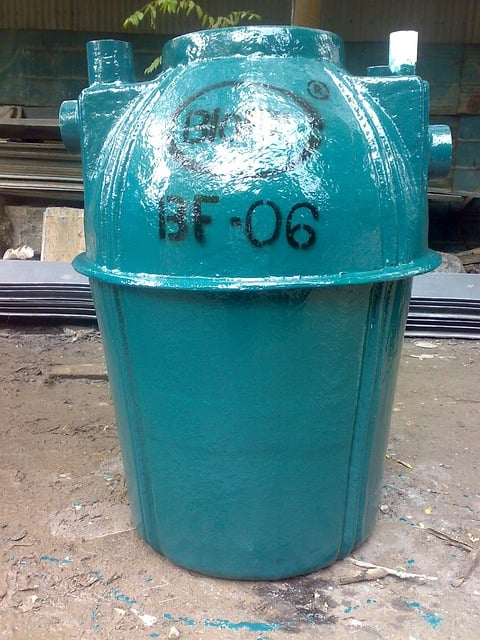Understanding and maintaining a septic system involves regular inspections, DIY cleaning, and professional pumping every 3-5 years. Protect your system by wearing protective gear, using suitable pumps, and avoiding chemicals. While DIY methods save costs, professionals are crucial for optimal performance, regulatory compliance, and extending the lifespan of your septic system.
In today’s quest for self-sufficiency, understanding DIY septic maintenance is appealing. However, navigating the complexities of your septic system can be challenging. This article guides you through the intricacies of septic system maintenance, offering a clear distinction between what you can and cannot do yourself.
From grasping the basic principles to recognizing when professional help is crucial, you’ll discover practical insights into “DIY vs. Professional.” Optimize your septic system’s longevity with our comprehensive guide, focusing on effective septic system maintenance.
- Understanding Septic System Maintenance: The Basics You Need to Know
- What You Can Do Yourself: A Step-by-Step Guide
- When to Call the Pros: Recognizing Signs and Benefits of Professional Service
Understanding Septic System Maintenance: The Basics You Need to Know

Understanding septic system maintenance involves grasping the basic functions and components of your home’s septic setup. At its core, a septic system is designed to treat and dispose of wastewater from your home or business, safely and responsibly. It consists of several key parts: the septic tank (where solid waste settles), the drainfield (which filters and absorbs water), and the leach lines (that distribute and absorb wastewater). Regular maintenance ensures these systems operate efficiently, extending their lifespan and preventing costly repairs or replacements.
Septic system maintenance encompasses both routine tasks and more complex procedures. Owners can handle some aspects themselves, such as inspecting pipes for clogs, cleaning out sediment from the tank, and monitoring odour levels. However, other critical components require professional expertise. Tasks like pumping the septic tank (typically every 3-5 years), repairing or replacing drainfield pipes, and addressing system imbalances demand specialized knowledge and equipment. Understanding these boundaries is crucial in navigating DIY projects versus professional services for optimal septic system care.
What You Can Do Yourself: A Step-by-Step Guide

If you’re looking to save on costs and maintain your septic system independently, there are several tasks you can safely accomplish yourself. Before starting any DIY project, ensure you have a basic understanding of your septic system’s layout and components. Begin with regular inspections—at least once monthly—to familiarize yourself with normal operation and identify any unusual noises or smells.
Next, schedule routine pumping every 3-5 years, depending on usage. This involves emptying the septic tank to prevent overflow and sediment buildup. Wear protective gear and use a pump designed for this purpose. After pumping, clean the tank’s walls using a low-pressure wash and a mild detergent to remove any accumulated scum or sludge. Remember to dispose of waste according to local regulations and never pour chemicals or non-biodegradable materials into your septic system.
When to Call the Pros: Recognizing Signs and Benefits of Professional Service

While many homeowners opt for DIY methods to save costs, certain aspects of septic system maintenance are best left to professionals. Recognizing when to call in expert help is crucial for maintaining a healthy and efficient septic system. Look out for signs like clogs, strange odors, or water backup around your property, as these could indicate serious issues within the septic tank.
Professional septic maintenance offers numerous benefits. Pros have the specialized tools and knowledge to inspect and clean tanks thoroughly, ensuring optimal performance. They can identify potential problems before they escalate, prevent costly repairs, and extend the lifespan of your septic system. Regular professional servicing also guarantees compliance with local regulations, which can be a legal requirement in many areas.
In conclusion, understanding your septic system’s maintenance is key to prolonging its lifespan. While some tasks, like pumping and cleaning, can be tackled DIY-style, many aspects of septic maintenance require professional expertise. Recognizing when to call the pros, such as for complex issues or regular inspections, ensures your system operates efficiently and prevents costly repairs. By combining self-care with professional support, you can maintain a healthy, reliable septic system tailored to your needs.
